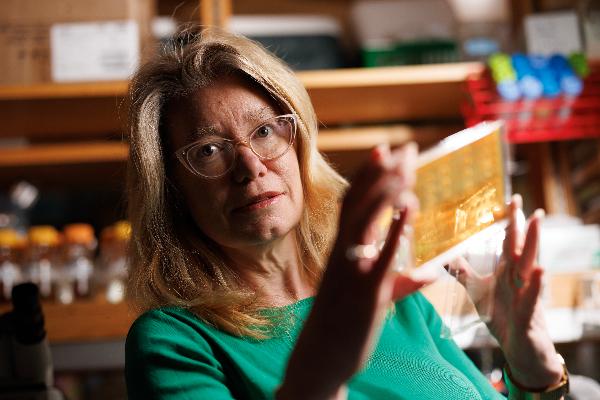
“There's been this tension between investing in mentoring versus productivity. Historically, the thought has been that if you’re focusing on mentoring, then the science must be being sacrificed. I really think that good mentoring is essential and critical to maximum productivity. Happy people do good science, and people who feel supported do good science.” — Amy Gladfelter, PhD, professor of cell biology, professor of biomedical engineering, and a Duke Science and Technology Scholar.
Gladfelter learned how to be a mentor through formal, intensive mentor training, as well as through “amazing mentors” who were good role models. “My PhD advisor was a great mentor in terms of fairness and directnss in communication,” she said. That mentor as well as her undergraduate advisor also were good at providing constructive criticism in a way that made her feel they had her best interests at heart.
In addition, learning to be a mentor takes practice, she said. “I’ve learned to be a mentor by paying attention to all my relationships with mentees and recognizing that it’s just not a one-size-fits-all model, ever. Every mentoring relationship is a unique connection, and people need different amounts and modes of communication,” Gladfelter said. “As I have mentored more people, I’ve accumulated different strategies for different situations.”
Gladfelter said she thinks of mentoring as an everyday activity, though the big achievements from mentees are memorable. “It’s really exciting when PhD students or postdocs get faculty jobs. But that is very much the culmination of everyday mentoring — it’s the experiments, the papers, the applications and the coaching for interviews.”
She also finds it rewarding when mentees take projects in unexpected directions. “One of my mentoring goals is to make my mentees feel like they’re steering their own ship, rather than me micromanaging a project so that it’s coming out to be exactly what I want it to be. I embrace the unexpected outcomes that come with that.”
Gladfelter also tries to emphasize to her mentees that mentoring is a two-way street. “They need to ask for what they need too. That’s something I work on a lot; empowering the mentee to tell me what they need.”